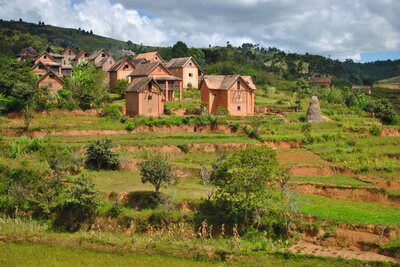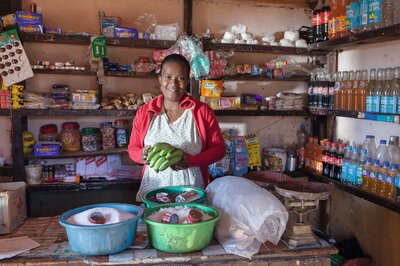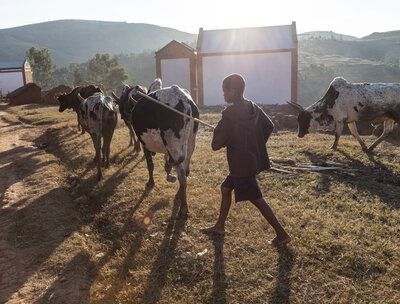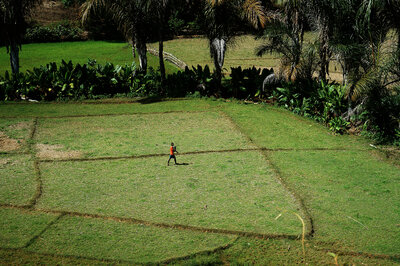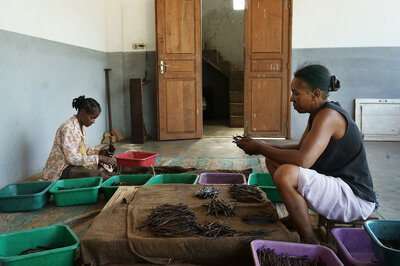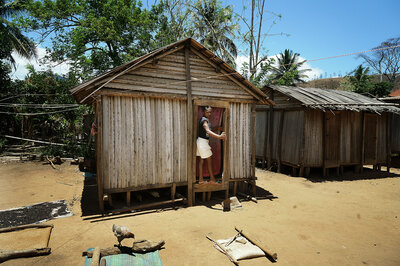-
CapitalAntananarivo
-
Area587,295 km²
-
Poverty rate*75% of the population live under the poverty line of $2.15 per day
-
UN DEVELOPMENT INDEX*Rank: 183 out of 193
-
Population30,300,000
-
People supported per year615,700
-
Thematic focusWASH & Water Governance
Market Systems Development
Education and Vocational Skills
Climate & Disaster Resilience
Helvetas began its involvement here back in 1982, initially concentrating efforts on forestry and protecting natural resources. Today our focus is on agriculture. Thanks to its isolation from Africa, Madagascar possesses a one-of-a-kind diversity of flora and fauna. In spite of the island’s natural fertility, the people live in great poverty. Most of them are subsistence farmers. Helvetas helps smallholders increase crop yields by showing them more effective farming methods. The object is to enable them to feed their families and sell the surplus to earn some money.
Fair terms of trade for smallholders
We help small farmers form cooperatives and sell their produce directly to exporters or big companies – so as to cut out the often exploitative middleman. The most successful exports include vanilla, of which Madagascar is by far the world’s biggest producer, and cacao for making chocolate; but also honey, which is carried in Helvetas’ Fairshop.
Water supply and sanitation
Contaminated drinking water and poor hygienic conditions give rise to diarrheic diseases and, as a result, high infant mortality in Madagascar. So the water supply and sanitation are another focus of our efforts here. Back in the 1990s, public services in Madagascar, including the water supply, were decentralized, i.e. delegated to communities. Helvetas helps out the local authorities, many of which are still inexperienced and ineffectual, and includes them in planning and implementation.
From the hand pump to the water kiosk
Specifically, the available water sources are inventoried and the water requirements of individual families are determined. Then solutions are developed to meet those requirements – everything from hand pumps to so-called water kiosks, an equitable system of payment using tokens and run by a local company. Our holistic approach includes measures to prevent sources from drying up, e.g. by building small dams or reforestation.
Our Projects in Madagascar
If you would like to know more about our work in Madagascar, click on each project on the map for details.
HELVETAS MADAGASCAR
Lot VJ 2 Ter A Ambohimiandra
BP 3044
101 Antananarivo
Madagascar
Phone:+261 20 76 611 73
E-Mail: madagascar@helvetas.org


